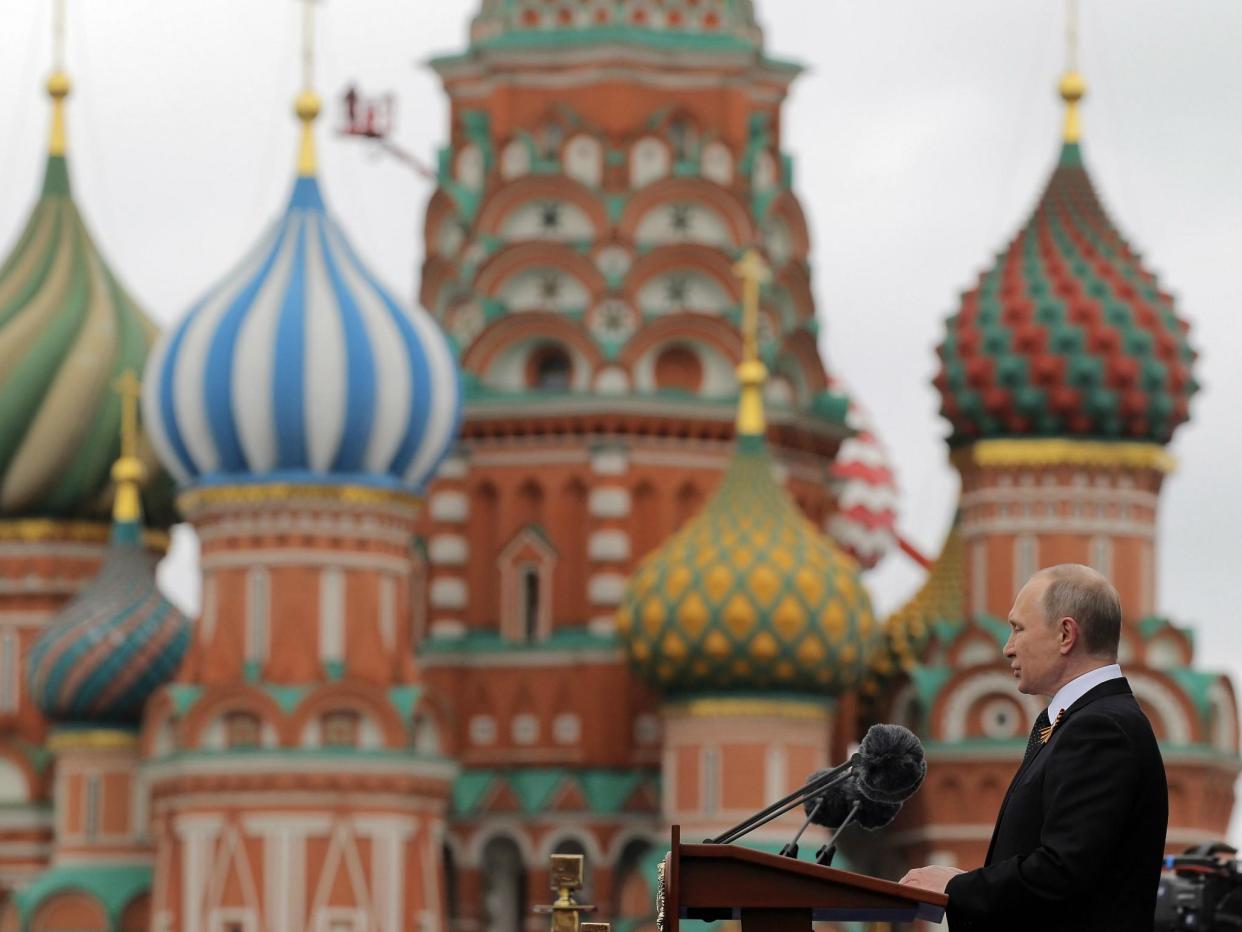Senate votes for new Russia sanctions while limiting Trump's ability to lift them

The Senate voted in an overwhelming majority to sign into law new sanctions on Russia, undermining Donald Trump's ability to lift them and signalling that Republicans and Democrats are putting “politics aside”.
The bill now goes to House for a vote and ultimately to Mr Trump’s desk for signature - .
With a 98-2 vote, the Senate showed that “it is in the national interest to penalise Russia for its interference in the 2016 election,” Eddie Fishman, a nonresident Fellow at the Atlantic Council’s Dinu Patriciu Eurasia Center, told The Independent.
The bill is actually regarding sanctions against Iran, with the amendment for Russia having been added in a 97-2 Senate vote on Wednesday, a move which Executive Director of the Center for National Interest Paul Saunders told The Independent was “very significant”.
Most Republicans would have been reluctant to vote for a stand-alone Russia sanctions bill because it could be seen as a knock against the President, explained Mr Fishman.
The ongoing FBI, House, Senate, and now Special Prosecutor investigations involving Mr Trump, his campaign team, and alleged ties to Russia, as well as reports that two US-based diplomatic compounds could be returned to Moscow have all triggered concern over the administration’s stance.
Mr Saunders said that Senate Democrats were not ready to move on Iran sanctions without the Russian amendment so the addition of it shows a “political understanding” between the parties.
Democratic Senator Jeanne Shaheen said that the “bipartisan amendment is the sanctions regime that the Kremlin deserves for its actions.”
“It is time to respond to Russia’s attack on American Democracy with strength, with resolve, with common purpose and with action,” Republican Senator John McCain said.
Chuck Schumer, the ranking Democrat in the Senate, said the bipartisan nature and broader coverage of the bill shows that Russian President Vladimir Putin “will not escape reproach”.
Despite how quickly the bill moved through the Senate - just one week of debate - there was little knowledge in the way of a House timeline.
Mr Saunders said there is a “widespread concern” regarding Russia across parties but re-election in 2018 is certainly a concern for many members of Congress and that could affect the timing and how House members vote, said Mr Saunders.
Secretary of State Rex Tillerson had urged Congress not to pass the bill despite the need to address issues with Iran because it would limit “diplomatic maneuvering,” according to Foreign Policy
“The relationship between the United States and Russia is at an all-time low and it’s getting worse,” he said, adding that passing the bill would not help move the “constructive dialogue” he built further along.
The White House said it thinks the existing sanctions against Russia are effective, which could mean they do not support the Senate bill that expands them.
The issue, as Mr Saunders pointed out, is the Senate bill expands sanctions on Russia to include railway, mining, energy, and finance sectors and “the more you broaden [economic] sanctions, the larger the number of stakeholders” involved in those sanctions.
The new bill targets one of Russia’s big projects - a natural gas pipeline that circumvents Ukraine and directly feeds the rest of Europe.
It also includes language putting sanctions on anyone involved in "malicious cyber activity," the supply of arms to Bashar al-Assad’s regime in Syria, and the Russian intelligence community.
“The legislation sends a very, very strong signal to Russia, the nefarious activities they've been involved in,” Senator Bob Corker, the Republican chairman of the Senate Foreign Relations Committee, said as lawmakers debated the measure.
However, many do not expect the bill to pass the House without some changes being made, possibly softening the bill so that the Trump administration can sign it without diplomatic damage.
The timing of the House vote will be key, according to Mr Saunders who agrees with Mr Tillerson’s assessment.
A longer debate could leave room for the House Republican leadership and the White House to coordinate on a strategy and improve relations with Moscow in the interim or “get leverage”.
If the House ultimately decides not to pass the bill, Mr Fishman said it would be a “be a betrayal of their responsibility to defend America's national security.”

